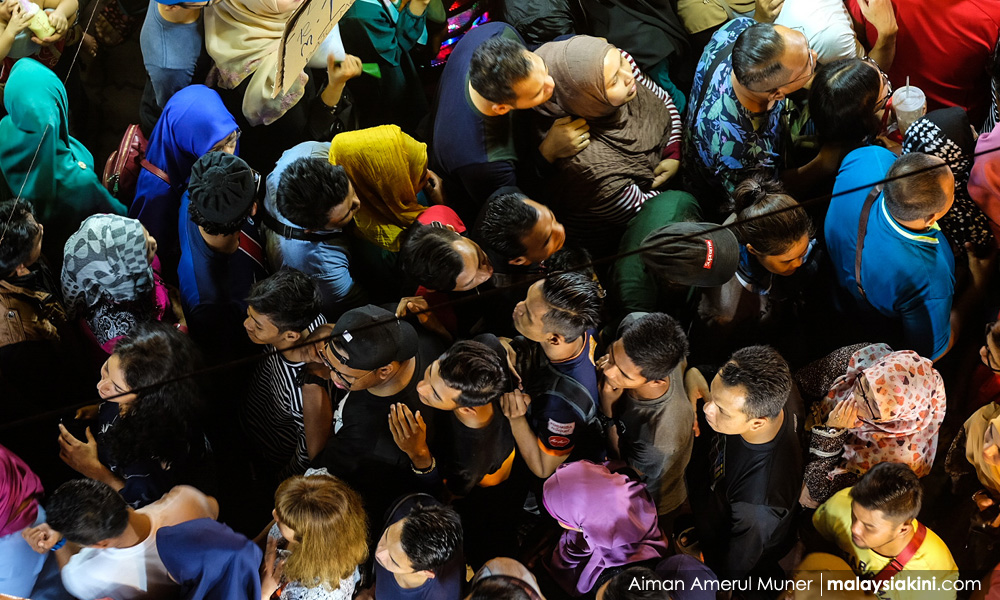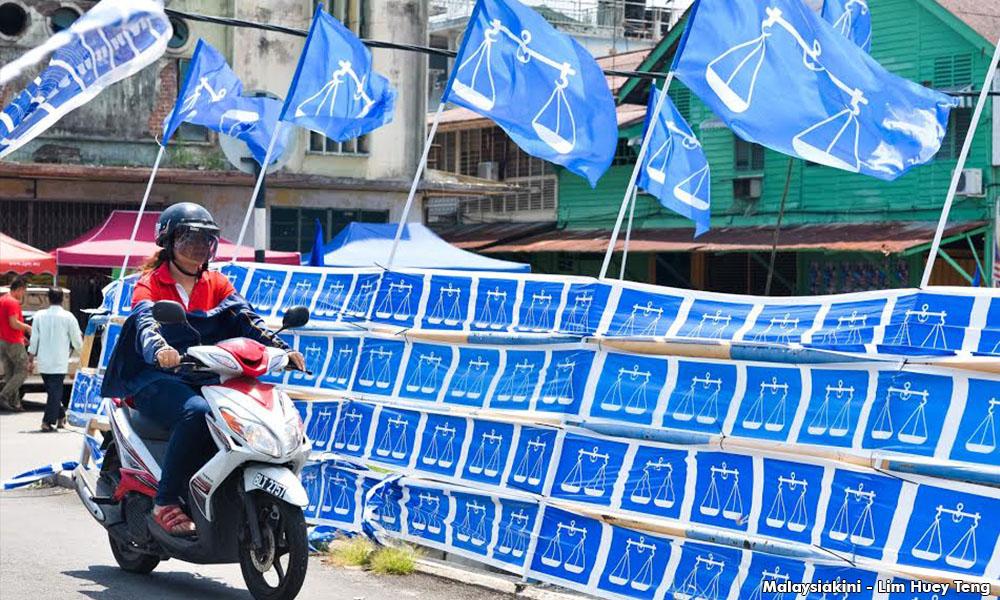Pakatan Harapan would face a “tall hurdle” in winning over urban Malays, according to prominent academic Wan Saiful Wan Jan.
In an article published in Singapore's Straits Times a day after speculation that he would join Bersatu and contest in GE14, he highlighted the concern among these voters that Harapan's victory in the polls could prove detrimental to existing Malay privileges.
“They see DAP as a Chinese party bent on removing the special status enjoyed by Malays in the country. DAP has repeatedly denied this accusation but the distrust remains.
“With DAP being the strongest party in Harapan today in terms of MP numbers, this perception is understandable, even though DAP itself has never formally mooted ideas to that end,” he added.
Wan Saiful, who announced his departure from the think-tank Institute for Democracy and Economic Affairs (Ideas) he co-founded yesterday, said from the fieldwork he conducted, it would be fair to state that among urban Malay voters, identity politics is still a major factor influencing how they vote.
Easy to stoke racial insecurity
“Although they are clearly concerned about the economy and some are longing for better governance, they continue to be fixated on identity politics.
“For most of them, if push comes to shove, identity politics trump other concerns they may have.
“A higher level of education and social status is no guarantee that they can move away from ethnoreligious politics to focus on policy matters,” he added.

Based on this scenario, Wan Saiful said that in order for Umno and BN to gain the upper hand, all that needs to be done is to stoke racial insecurity among these voters.
“They don't have to invest too much in the finer points of policy.
“Harapan has so far refused to exploit ethnic sentiments for short-term political gains, preferring to champion an agenda based on good governance.
“But this principled approach creates a problem for them as Umno and BN have no qualms in exploiting and propagating ethnic insecurity,” he added.
Dislike criticising Umno openly
In the earlier part of his article, Wan Saiful noted that a common feature of urban areas in Malaysia is the relatively higher percentage of non-Malay voters and in some seats, ethnic Chinese make up the majority of voters.
“This demographic mix raises a number of questions: Is it the case that the opposition won urban seats because of the large size of non-Malay voters, or did the Malays vote for them too?
“Is the anti-incumbent feeling in Malaysia shared across all ethnic groups or is it really just another ethnic divide?
“The voting intentions of urban Malays matter because, in a hard-fought battle, every vote counts, arguably even more so in this election, which has seen a scramble for the allegiance of Malay voters among several parties,” he said.
These questions led Wan Saiful to conduct a series of interviews and focus group discussions with urban Malay voters, specifically in the two states being targeted by Harapan - Kedah and Johor.
Wan Saiful said the findings could be summarised into four points, which included the perception towards DAP.

The first point, he said, was that urban Malays disliked criticising Umno and BN openly.
“At the start of almost all the interviews, they either shied away from commenting on the ruling coalition or made only positive remarks. But as soon as they became more comfortable with the discussion, they opened up.
“Once that stage was reached, it became obvious that not all are happy with the situation in Malaysia today and their voting intentions are not yet settled.
“This is an important finding because it explains why almost all polls in Malaysia today suggest that Umno and BN will handily win the election. In opinion polls, respondents have to answer questions quickly, without the opportunity to develop trust in their interviewers,” he added.
Second, he said, urban Malays were livid over the rising cost of living, while corruption and good governance come later in their list of concerns.
“Governance issues are more frequently flagged by voters who are financially better off. The rest of the group gave more importance to bread-and-butter issues, such as the increasing cost of daily household items and the fluctuation of petrol prices.
“Many of them also seem to link the rising cost of living with the introduction of the goods and services tax (GST) by the government in 2015,” he added.
Urban Malays feel neglected by Umno
The third point, revealed Wan Saiful, was that urban Malay voters felt that despite being ethnic Malays, who are supposed to have special privileges, they were being neglected by the Umno-led government.
“The introduction of the New Economic Model by Prime Minister Najib Razak in 2010 has led to more attention being given to the bottom 40 percent of society, or the B40 group.
“Many urban Malays belong in the middle 40 percent (M40) group. They are not wealthy enough to pay for items and services that the top 20 percent,” he added.

